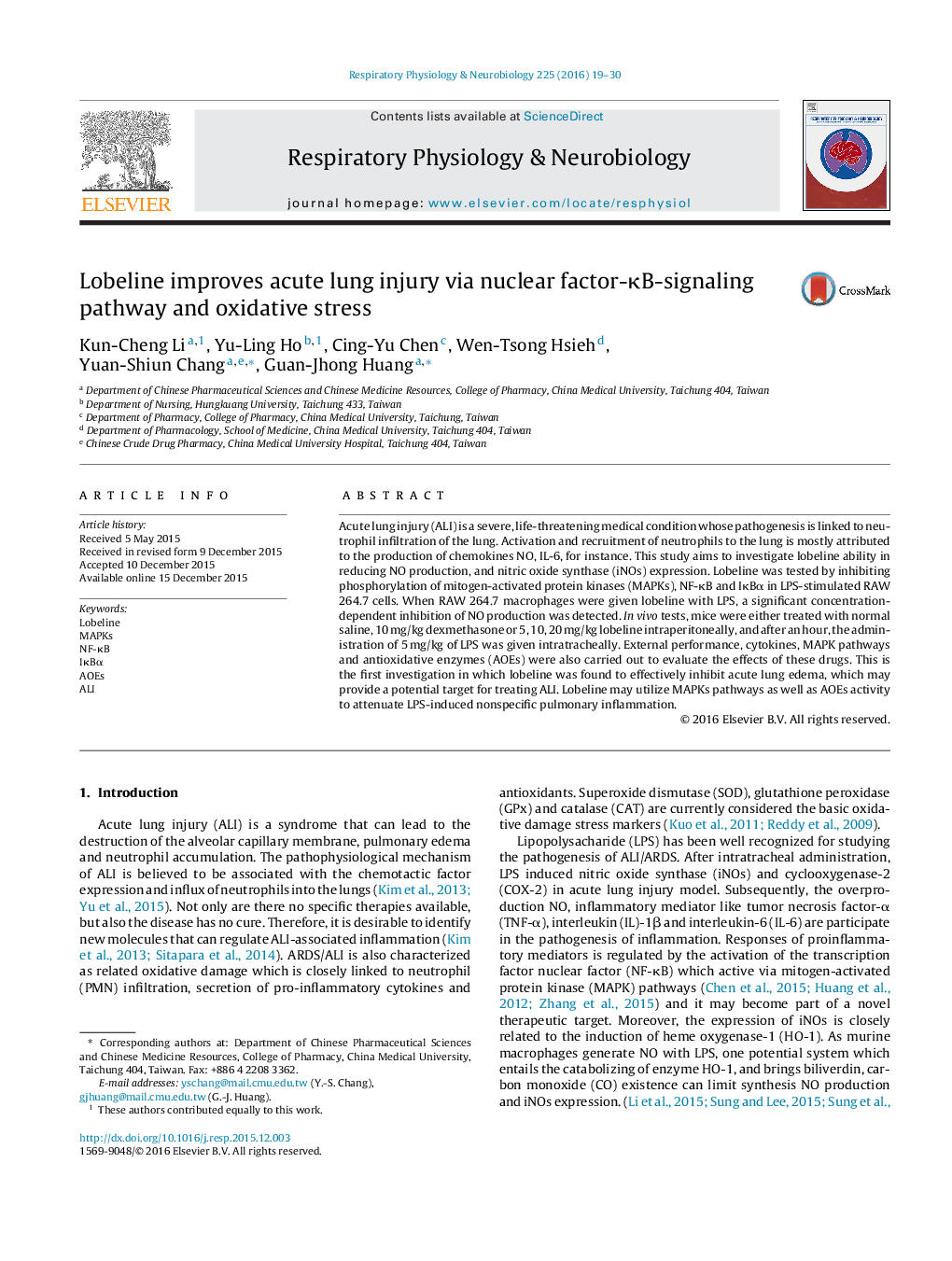| Article ID | Journal | Published Year | Pages | File Type |
|---|---|---|---|---|
| 5925876 | Respiratory Physiology & Neurobiology | 2016 | 12 Pages |
â¢Lobeline exhibits antioxidant activities in vitro and in vivo.â¢Anti-inflammatory activities of lobeline were assessed in mouse acute lung inflammatory induced by lipolysaccharide.â¢Lobeline might be a natural antioxidant and anti-inflammatory agent.
Acute lung injury (ALI) is a severe, life-threatening medical condition whose pathogenesis is linked to neutrophil infiltration of the lung. Activation and recruitment of neutrophils to the lung is mostly attributed to the production of chemokines NO, IL-6, for instance. This study aims to investigate lobeline ability in reducing NO production, and nitric oxide synthase (iNOs) expression. Lobeline was tested by inhibiting phosphorylation of mitogen-activated protein kinases (MAPKs), NF-κB and IκBα in LPS-stimulated RAW 264.7 cells. When RAW 264.7 macrophages were given lobeline with LPS, a significant concentration-dependent inhibition of NO production was detected. In vivo tests, mice were either treated with normal saline, 10 mg/kg dexmethasone or 5, 10, 20 mg/kg lobeline intraperitoneally, and after an hour, the administration of 5 mg/kg of LPS was given intratracheally. External performance, cytokines, MAPK pathways and antioxidative enzymes (AOEs) were also carried out to evaluate the effects of these drugs. This is the first investigation in which lobeline was found to effectively inhibit acute lung edema, which may provide a potential target for treating ALI. Lobeline may utilize MAPKs pathways as well as AOEs activity to attenuate LPS-induced nonspecific pulmonary inflammation.
Graphical abstractDownload full-size image
